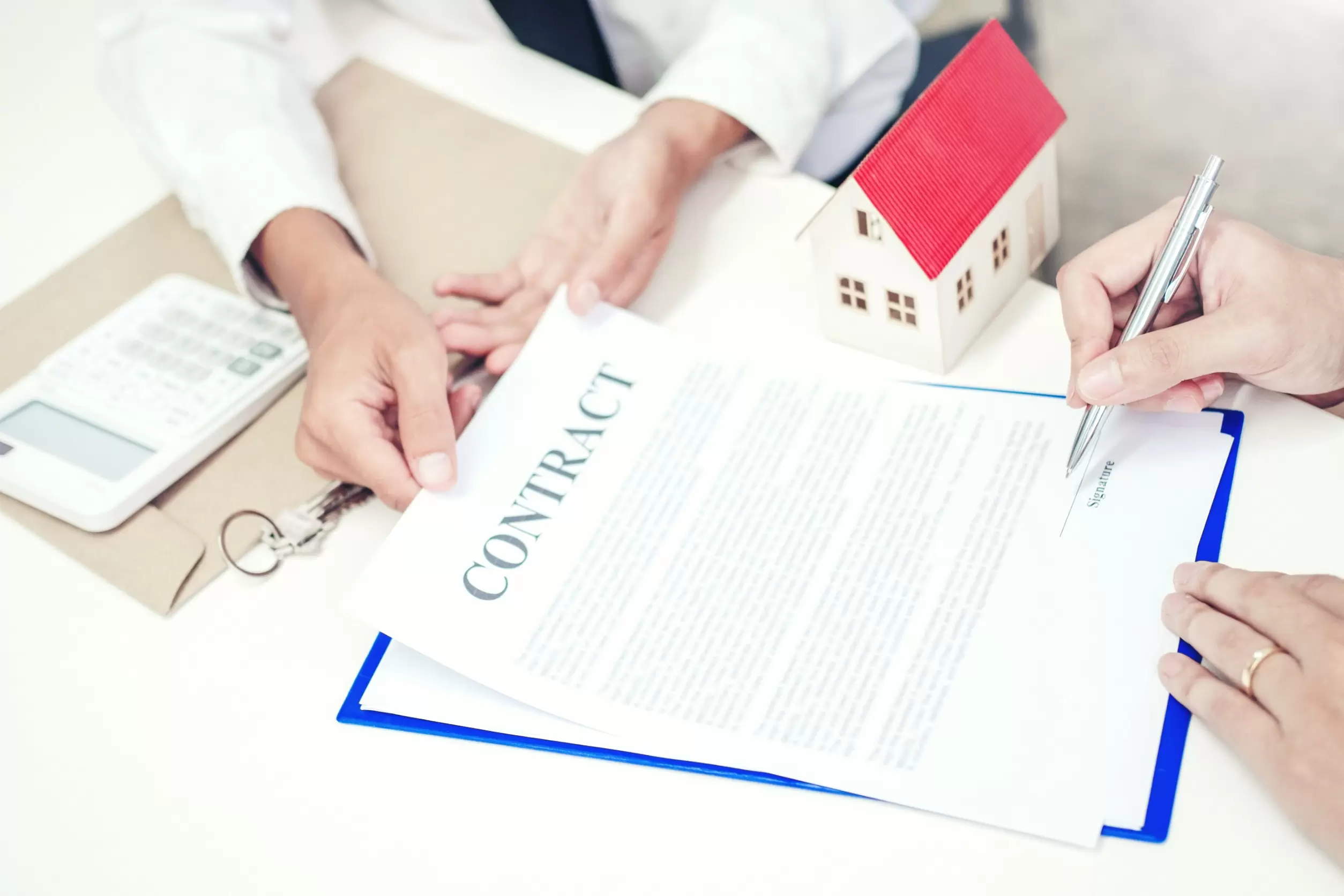Many of the articles in this section of the website deal with buying property in Spain, however, what if you are planning on selling property in Spain, this guide will cover the main points that you need to consider – from estate agents to lawyers in Spain and from taxes to utility bills.

1. Advertising the Property in Spain
Anyone who has spent any time in Spain will have seen the Se Vende signs protruding at various angles from houses and apartment windows. However, this is quite old fashioned, and is not seen nearly as often nowadays.
Another possibility that has proved popular in more recent times has been to advertise the property via an internet property site. Of course, this has the potential to reach a much larger audience, located anywhere in the world, though the effectiveness will depend on the website chosen to market the property in Spain. Some of these companies offer their services for free, while others charge.
Of course, another, more traditional method, would be to contract a local estate agent to market the property. As previously mentioned the biggest downside of this is the fact that the agent will charge a fee, though it is worth pointing-out that this will normally be a portion of the sales price, and therefore they have to be successful in order to benefit.

2. Spanish Real Estate Agents Fees
At the height of the Spanish property boom that gripped the country in the early 2000s, it was possible for a real estate agency to charge as much as 18% of the sales price!
However, in the current market, and due to competition from marketing models developed on the internet, mentioned previously, fees have been in a long-term decline, such that it is quite normal to be quoted a fee of anywhere between 3% and 5%.
One thing to be careful about when dealing with an estate agent is the possibility that they will request that you sign an exclusivity contract, i.e. that you will not contract any other real estate agency or company to market your property.
While you may be able to negotiate a lower commission rate if they are given exclusive rights to market the property, this has to be balanced against the benefit to be gained by being able to market the property across a number of agencies and internet sites.
Any contract, be it exclusive or otherwise, should clearly state the commission fee the agent will charge for successfully marketing the property.
One of the main benefits of contracting a local estate agent is the possibility of them being available to show the property in Spain when you may be out of the country. They will also know the best forms of local marketing, such as which papers to place adverts in. But you would be advised to ask them what forms of marketing they will be using to market your property to get a better idea.

3. The Selling Process: Closing and Payment
Once an offer has been made and accepted on the property, then typically the buyer's lawyer will carry out due diligence checks on the property in Spain. Assuming no issues arise, the next advisable step is to prepare and sign what is known as a 'deposit contract'. This involves a deposit being paid by the property purchaser which effectively grants an exclusive right to purchase with a date being fixed for the purchase to be finalized.
Should the sale not go through due to a change of heart on the part of the purchaser, then their deposit, often 10% of the purchase price, is lost. During the selling property in Spain process, should the failure of the property transfer be caused by the vendor then they are obliged to pay the purchaser 20% i.e. double the amount of the deposit.
Once again, assuming that everything happens smoothly, the next important date is 'the closing'. This is a meeting that will include any or all of the following: the purchaser, the vendor, their legal representatives, the bank representatives and the notary. The notary is required as the purchase deed is a public document and requires a notary to formally witness it.
At the closing stage it will be necessary to sign the public deeds of ownership, though it is sufficient for your lawyer to be present if they have full power of attorney.
4. Transfer of the purchase monies
Payment is made typically with a bank guaranteed cheque, though it may be possible to use the notary's escrow account. The public deeds will contain a detailed description of the property as well as contain the details of the purchaser, vendor, the purchase price, form of payment and any other relevant conditions.

5. Contractual Terms
It is worth highlighting the point that it is advisable to contract the services of a lawyer for the sale of such an important and costly asset as Spanish property.
There can be many terms in a typical deed of sale-purchase of property, and such terms can assign responsibility for the payment of taxes such as the sales taxes on one or other of the parties, regardless of who is typically responsible for their payment.
Therefore, to avoid the possibility of unwittingly accepting responsibility for taxes that you are not liable for or indeed agreeing to any other disadvantageous terms, make sure to have a qualified lawyer assist you with the sale.

6. How much tax do you pay when selling property in Spain?
A transfer of property in Spain can function differently from other jurisdictions and so it is important to be aware of the assumptions that the law makes with regards to responsibilities and liabilities for payments of taxes and charges when selling property in Spain.
In the context of taxes payable on the sale of property in Spain, it may be worth mentioning that a sale does generate a potential obligation to pay taxes, it does at least avoid potential Spanish inheritance tax, which may be more costly when legal and notary fees are taken into consideration.
The main taxes and charges connected with property ownership include the following: IVA or ITP (VAT on new or second-hand homes) Plusvalía , IBI (Local Municipal Tax), Comunidad Charge (If in a shared building or urbanisation), utility bills and, of course, any mortgage on the property.
7. ITP
Where the property being sold is second-hand then the tax payable is ITP and the rate is typically between 7% and 8% depending in which region the property is located, as ITP is set by the regional government rather than at a state level and so varies a little as between each region.
When buying a new property IVA is paid on the purchase price to the developer or promoter when buying the property. It is then the responsibility of the developer or promoter to make their IVA returns to Hacienda (Spanish Tax Authorities) in the usual way. If a second-hand property is being purchased then it is the responsibility of the purchaser to pay this tax directly (using form 600) in the local tax offices within one month of signing the deeds.
8. IBI
Municipal tax in Spain is know as IBI (Impuesto de Bienes Inmuebles). It may be the case that the vendor has already paid the local municipal property Tax in Spain for the full year, yet will only be in the property for a portion of that time.
If that is the case then upon facilitation of receipts showing payment of the tax, a vendor will be entitled to add this extra amount to the price of the property. In any case the new property owners will be anxious to see receipts for the previous and current years IBI as they are otherwise liable. The purchaser's lawyer will typically request a copy of the town hall receipt showing payment was made by the vendor.
9. Plusvalía tax
This tax is ordinarily the responsibility of the vendor as they have benefited from the increase in the value of the property since they previously bought it.
This is not written in stone however and should the two parties come to an agreement it can become the responsibility of the purchaser to discharge this liability. In fact, where the vendor is a non-resident this liability actually shifts to the purchaser.
Of course if the vendor is resident and reinvests the funds in another primary residence then there is no liability for plusvalía. If however, the vendor is a non-resident then the purchaser is obliged to retain 3% of the selling price and pay this to the tax office. Evidence of payment is demonstrated with a stamped copy of form 211 and the vendor can then deduct the same amount from the selling price.

10. Tax on Capital Gains
As is the case when you sell property in the UK or indeed sell any overseas property, you may have to pay capital gains tax when you sell property in Spain.
The amount of capital gains tax in Spain that you must pay is a function of the difference in the property prices paid and received in the purchase and sale of property in Spain. The idea is that if you have made a capital gain, you must pay tax on that capital gain. Given the increase in Spanish property prices over recent years, this can be a considerable sum.
- Up to 6.000 Euros: 19%.
- From 6.000 to 50.000 Euros: 21%.
- From 50.000 Euros to 200,000 Euros: 23%.
- Above 200,000 Euros: 26%
Firstly, it is necessary to take into account that on the day of the signing of the sales deeds, the purchaser will retain 3% of the sales price in order to comply with their obligation to deposit this amount with the Spanish tax authorities, using Form 211, within a period of one month.
11. Exemptions from Tax on Capital Gains
An exemption from Capital Gains tax exists for those residents over the age of 65 or those who reinvest in a new Spanish property.
The period for reinvesting the funds in the purchase of a new personal, primary, principal home is 2 years from the date of the sale of the property.
If a Spanish tax resident sells the home dwelling (having lived there for a minimum of 3 years prior to the date of sale) AND being 65 years of age or more, then the capital gains tax is totally tax free, without any other requirements.
The above exemptions apply only to tax residents in Spain.
If the seller invests the proceeds (fully or partially) of the sale of the Spanish property (being this property the habitual residence) in another property with the same purpose (being used as habitual residence), those funds would be tax free -this exemption is only to be applied to the citizens of certain countries (all of the European Union, and Iceland and Norway)-.
Should there be no profit on the sale (or if the profit is less than the 3% of the purchase price initially retained by the buyer), there then arises the possibility of claiming back from the tax authorities the whole of the 3% retention or part thereof. Being able to do so may also depend on other factors such as having paid the previous four years non-resident tax.
12. Capital gains tax rate changes following Brexit
Before Brexit, UK citizens were also considered EU citizens, and were entitled to an exemption from payment of Capital gains tax when the proceeds of the sale of the primary residence were reinvested in another property in Spain for residential purposes.
Now that British citizens are non residents of the EU - for tax purposes - any such sale and reinvestment will be subject to Capital gains tax, at a rate between 19% - 26% of the gain in value of the Spanish property.

13. Lawyers Fees
Legal fees will vary according to the law firm you instruct to assist with the sale of the property, but will typically amount to somewhere between 0.5% - 1% of the value of the property.
14. Non-Residents: 3% Withholding Retention on Selling
Firstly, it is important to distinguish between the vendor who is a Spanish resident and the vendor who is non-resident.
In the latter case, there are tax implications in that it is necessary to take into account that on the day of the signing of the property deeds, the purchaser will retain 3% of the sales price and does so in order to comply with their obligation to deposit this amount with the Spanish tax office, using Form 211, within a period of one month.
This 3% contributes towards the total 21% (soon reducing to 19%) central government Capital Gains tax. Should there be no profit on the sale, there then arises the possibility of claiming back this 3%. Being able to do so may also depend on other factors, such as having paid the previous four years non-resident tax.
It is also possible to have the money paid directly to your UK bank account – you just need to have the lawyer managing this for you to make the appropriate application to the Tax Office.
15. Additional Costs
Finally, and in addition to the taxes that correspond to the vendor it is convenient here to mention the other costs associated with a property sale, like for example the Energy Efficiency Certificate.
This is a type of registrable Energy Performance certificate that measures the energy consumption of the property as compared to an established norm, and which must be taken to the Notary on the day of the signing.
Also, worth mentioning are the expenses associated with the cancellation of any mortgage held by the vendor as well as the Notary fees and the contingent Spanish land registry expenses.







